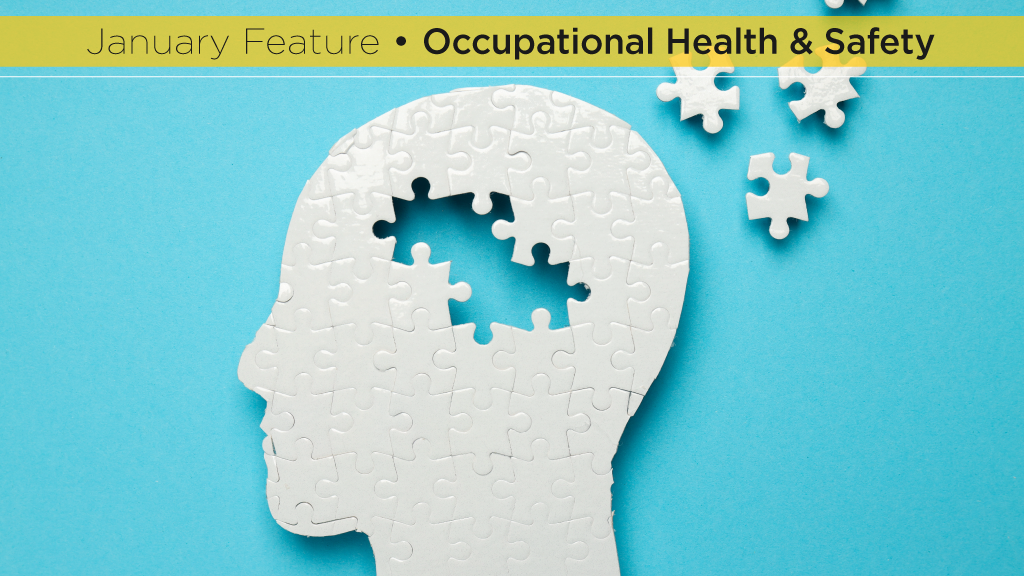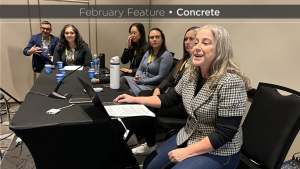It’s been a busy time for Nadina Holca since she was appointed EllisDon’s first mental health specialist last August.
‚ÄúI have travelled to different parts ∫⁄¡œ≥‘πœÕ¯, visited many different construction sites, and met with a number of executive and team leader members,‚Äù says Holca.
She has also travelled to Colorado, with more trips planned later this year, as EllisDon’s representative on the University of Colorado’s Construction Safety Research Alliance project.
EllisDon is one of a number of member companies of the alliance, whose vision is to eliminate serious construction industry injuries and fatalities through research and science.
The holder of an undergraduate degree in psychology and a master’s degree in public health, Holca was recruited by EllisDon.

Before coming to EllisDon, she was a mental health specialist at Manulife, where she provided consulting on complex mental health disability claims and supported clients and case managers in understanding mental health conditions.¬Ý
Previous to that position, she was a long-term health disability case manager for the same company.
She was also a volunteer crisis counsellor for Victim Services Toronto and then later worked as a research analyst for the Centre for Addiction and Mental Health.
“I’m not a mental health treatment provider,” says Holca, in a lead-in to explaining what exactly she does.
Instead, her role at EllisDon is much more broad based and she might be described as an in-house consultant evaluating what services are already in place and recommending measures on how the delivery of mental health can be improved.
“My work is focused on providing strategic support on an organizational level by identifying barriers to workplace mental health and developing and evaluating initiatives targeting those barriers.”
To achieve that goal and to better understand issues specific to the construction industry, she has been speaking to, and learning from, employees and team leaders.
“This has been quite enlightening,” she says.
Part of her duties include providing support and coaching to team leaders, such as health and safety members, who are dealing with employee psychological health and safety issues.
In some cases, where it’s required, that support can also be offered directly to employees, she says.
“While I do not provide psychotherapy services, I can help liaise individuals with meaningful treatment options in their communities and guide them to seeking support for themselves or providing information and education as to the direction they might want to take on their own.”
As part of her responsibilities, Holca will be building and expanding the company’s mental health resources, such as reading materials and literature which can be accessed online, researching mental health training courses, and exploring the possibilities of partnering or collaborating with external groups such as the Canadian Safety Research Alliance.
When asked what advice she can provide for people to maintain their mental health, she says she doesn‚Äôt believe there is one solution that works for everyone.¬Ý
‚ÄúIn general, it‚Äôs important to work to understand ourselves: why we are the way we are and what affects us both negatively and positively. By doing this type of self-reflection consistently, we can grow more comfortable in seeking and asking for what we need.¬Ý
“Sometimes our mental health suffers because we don’t really know how to unpack what we’re feeling, which makes us unsure of how to seek solutions or ask for support. This can make us very critical of ourselves.”
Therapy can be a useful tool for addressing those issues and, when that is not readily available, peer supports may be helpful, she says.
Asked how she got into the field of mental health, Holca says has always been interested in both medicine and psychology.
‚ÄúMy maternal grandparents were physicians, so I grew up in hospitals and laboratories. I had considered a nursing career due to my interest in medicine, although I realized I was more interested in the psychology aspect of human health.‚Äù¬Ý
In university, she focused her studies on both human physiology and psychology and completed a master’s degree in public health and addiction.
“My interest is rooted in understanding human behaviour. Why we do what we do, feel what we feel, and the things in our environment that affect our behaviour, emotions and experiences.”
Although not as strenuous as direct mental health treatment, her field of work can be demanding and Holca has ways of unwinding from the pressures.
“I look at my work as in figuring out the puzzle pieces of mental health our society and workplaces and ensuring that we create and evaluate initiatives that work. So, for me, this is often quite interesting and rewarding.”
Born in Romania, Holca immigrated to ∫⁄¡œ≥‘πœÕ¯ with her parents when she was seven.











Recent Comments
comments for this post are closed